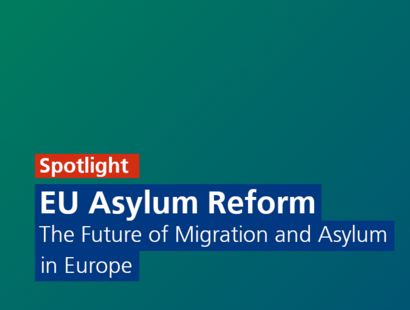Feminist Solutions for a Socially Just Covid-19 Economic Recovery
Times of crisis and renewal present opportunities for brave and innovative policy choices. Consensus is emerging on the need for a ‘socially just’ Covid-19 economic recovery, but agreement on what this means is harder to reach. The real challenge for G7 leaders remains how to ensure transformative change – rejecting the old ‘normal’ in favour of an economy centred on wellbeing and care. It is time for feminist alternatives to take centre stage.
A feminist Covid-19 economic recovery
Prime Minister Trudeau supports a ‘feminist Covid-19 recovery’, as does UN Secretary-General Guterres. Proposals from around the world demonstrate that feminist policy alternatives are both necessary and viable. Building on this rich literature, in cooperation with feminists in Argentina, India, the Philippines and Uganda, a new report from the Gender and Development Network suggests some lessons from the experiences of the pandemic in these countries.
Governments fail to address inequalities
The pandemic exposed and exacerbated inequalities globally – with impacts borne especially by women experiencing intersecting discriminations. Government responses were uneven and hampered by persistent inequalities.
Women’s unpaid care escalated with school closures, extra cleaning, caring for the sick, and time spent sourcing food. Some Indian women were even deterred by their families from taking jobs so they had time for extra care work. Yet government measures to address unpaid care were rare.
Women’s unemployment has been deeper than that of men, and their return to work slower. The informal nature of their work also created barriers around social protection, as in India, where many women face eligibility restrictions on relief measures. The Ugandan government’s rescue packages supported large companies rather than women-led small businesses. Women who retained their livelihoods also faced additional hardship. In Uganda, women were allowed to continue trading to maintain food supplies – but only if they slept in the markets rather than travelling home, further exposing themselves to infections and violence. Even in Argentina, where the government ostensibly pursued progressive policies on care, domestic workers faced increased workloads or unemployment.
Lessons for the future
Transformative policy measures are needed if Covid-19 economic recovery is to be socially just. Three clear proposals emerge for decision-makers.
- Protect and promote participatory decision making – centring those most impacted. Funding for women’s rights organisations can help amplify the voices of those most marginalised, while local women leaders have demonstrated the value of listening to communities.
- Design and fully implement policies that reflect and respond to the reality of women’s lives using intersectional analyses. Women’s concentration in informal work and low-paid care sectors, and their unpaid care burdens, shape the impact of government responses. Recognising barriers for women improves policymaking – for example through universal social protection.
- Adopt feminist proposals for a more equitable and inclusive economy. Investment in social infrastructure, for example, would create more employment for women, reduce unpaid care burdens, and improve care for the whole community. Moreover, the resulting economic stimulus would increase future government revenue streams. Living wages and enforcement of ILO conventions will further create decent work for women.
What should global leaders do?
Global economics constrains governments’ policy choices and fiscal space. Lack of regulation of multinationals has seen decreasing consumer demand passed through the supply chain to workers in the Global South. Austerity conditionality is re-emerging in loans from International Financial Institutions (IFIs), despite evidence of its negative impacts. This curbs public spending and promotes regressive taxation thus preventing investment in social infrastructure, while “flexibilisation” of labour reduces the availability of decent work. Governments’ ability to fund public services and social protection is further constrained by the growing debt crisis across the Global South.
G7 leaders must:
- Ensure an end to IFI austerity conditions, enabling governments to invest in social infrastructure.
- Provide much-needed resources through financing for a Global Social Protection Fund, fair rechannelling of Special Drawing Rights and agreement on a debt cancellation package that covers private creditors.
The solutions exist, for both domestic and international action to centre care and well-being in a just and equitable Covid-19 economic recovery. It is now up to global leaders – whether at the G7, the G20 or through the International Financial Institutions – to demonstrate the political will and vision to listen, learn, and act.
About the authors

The Gender and Development Network (GADN) brings together UK-based expert NGOs, consultants, academics, and individuals committed to working on gender, development, and women’s rights issues. Our goal is to ensure that international development policy and practice promotes gender equality and women’s and girls’ rights, so that all women and girls can realise their rights free from discrimination.
Twitter: @GAD_Network
Facebook: @gadnetwork
LinkedIn: Gender and Development Network
